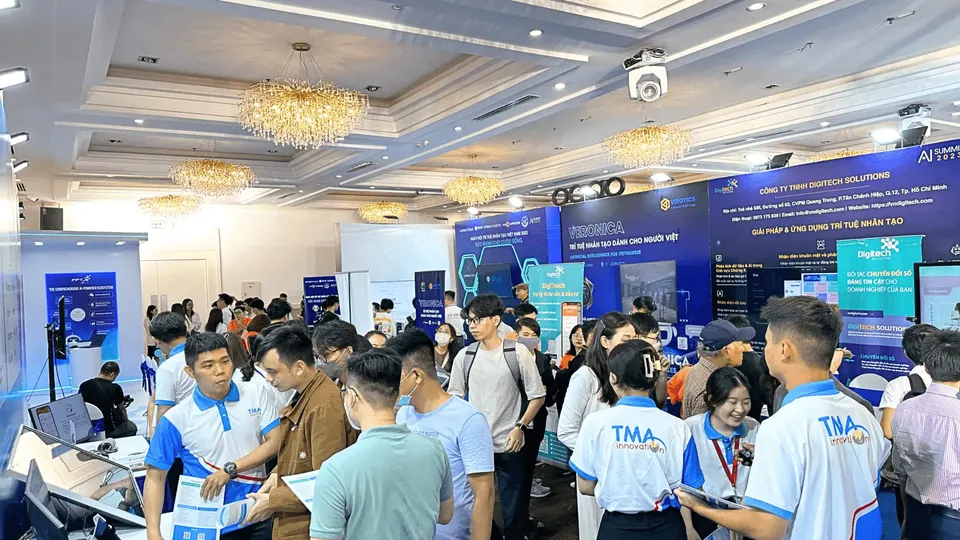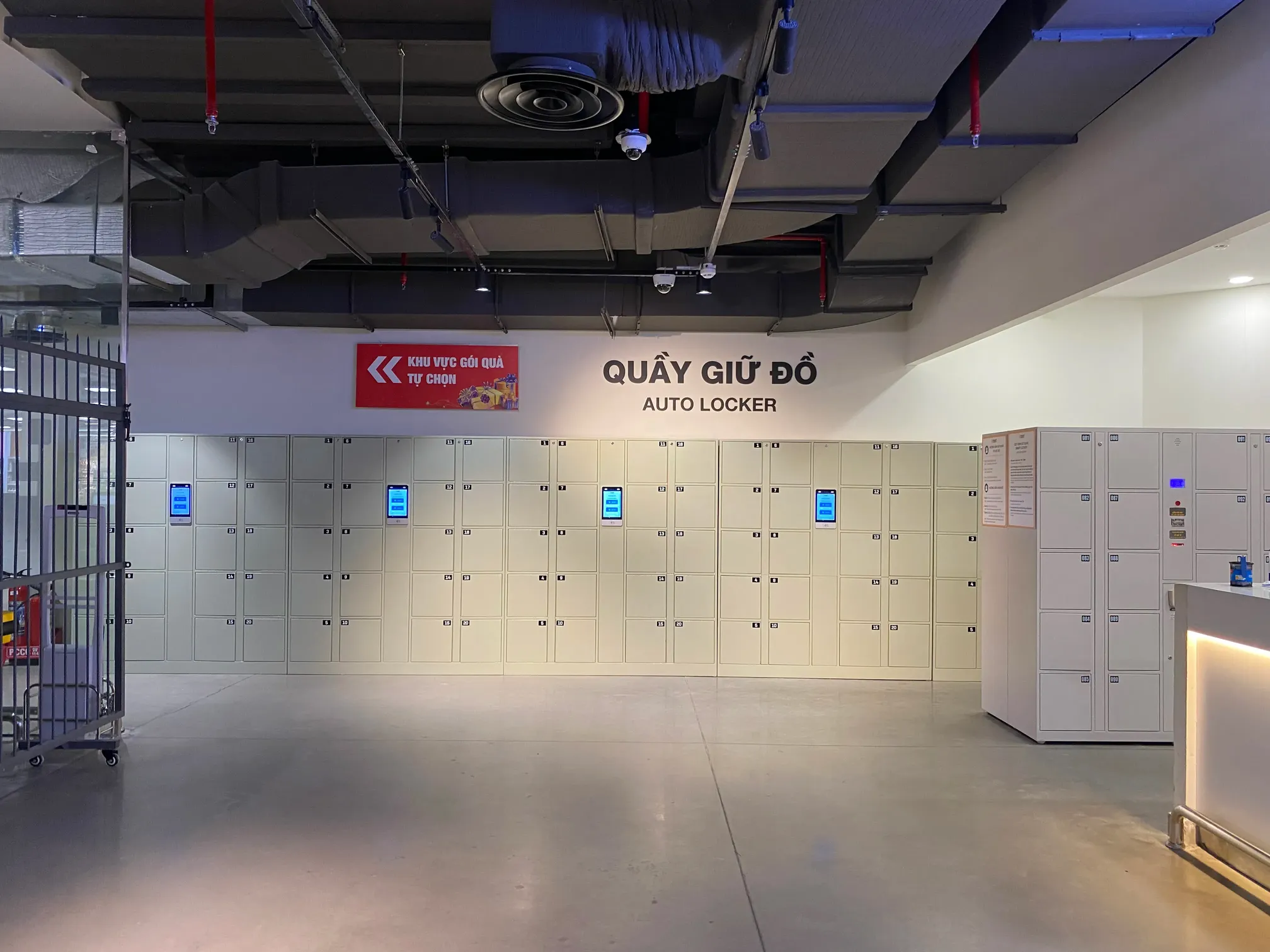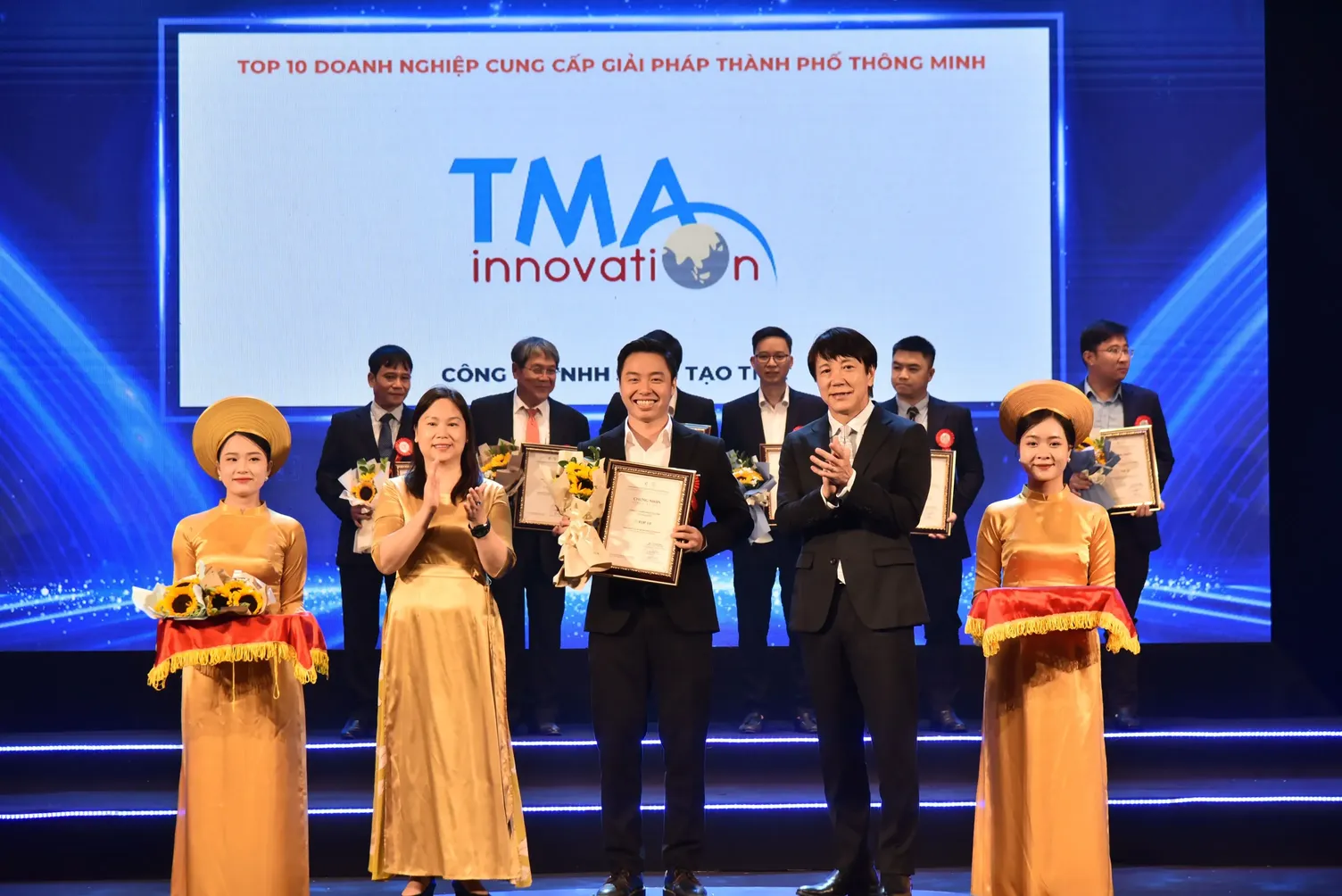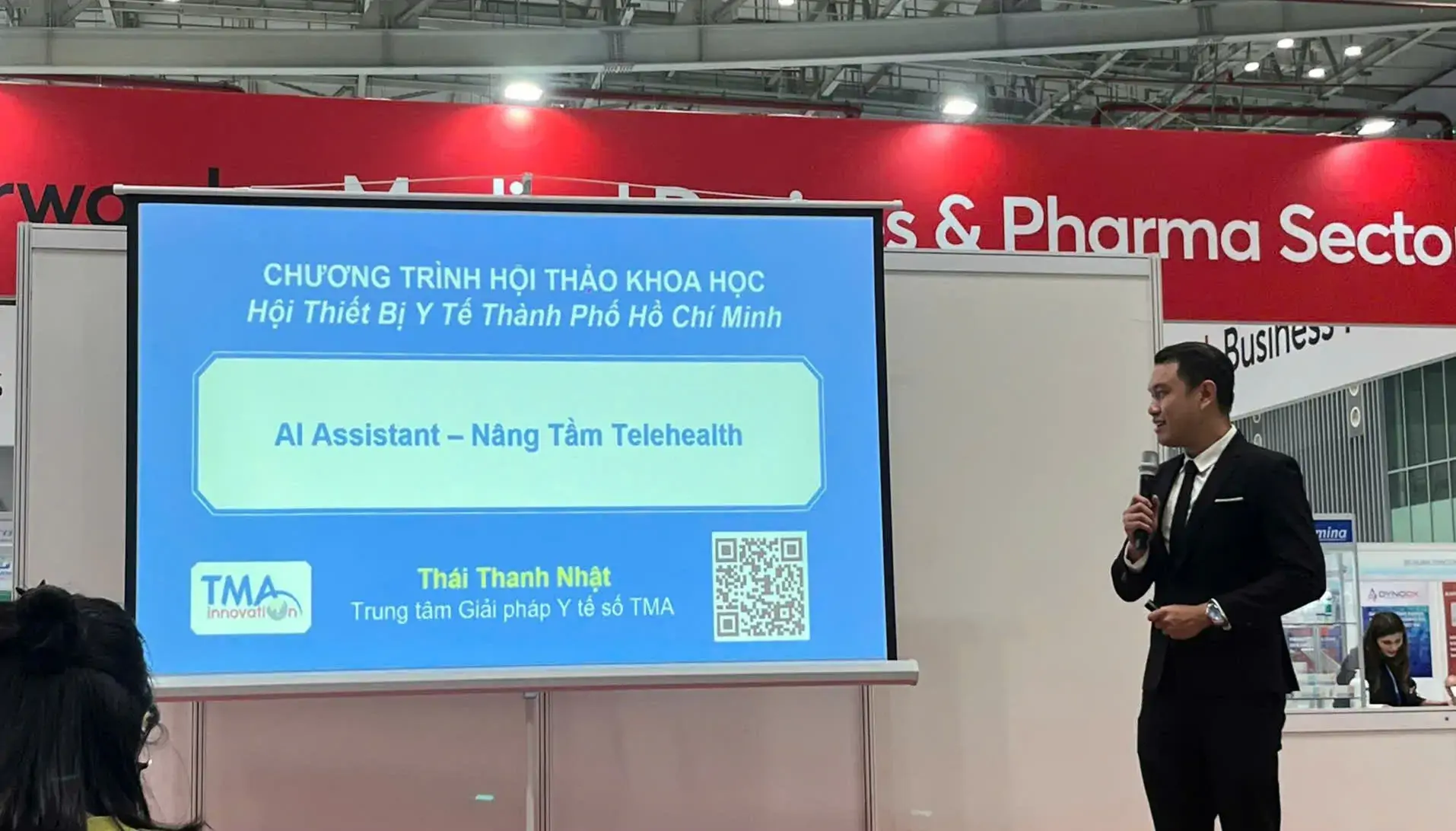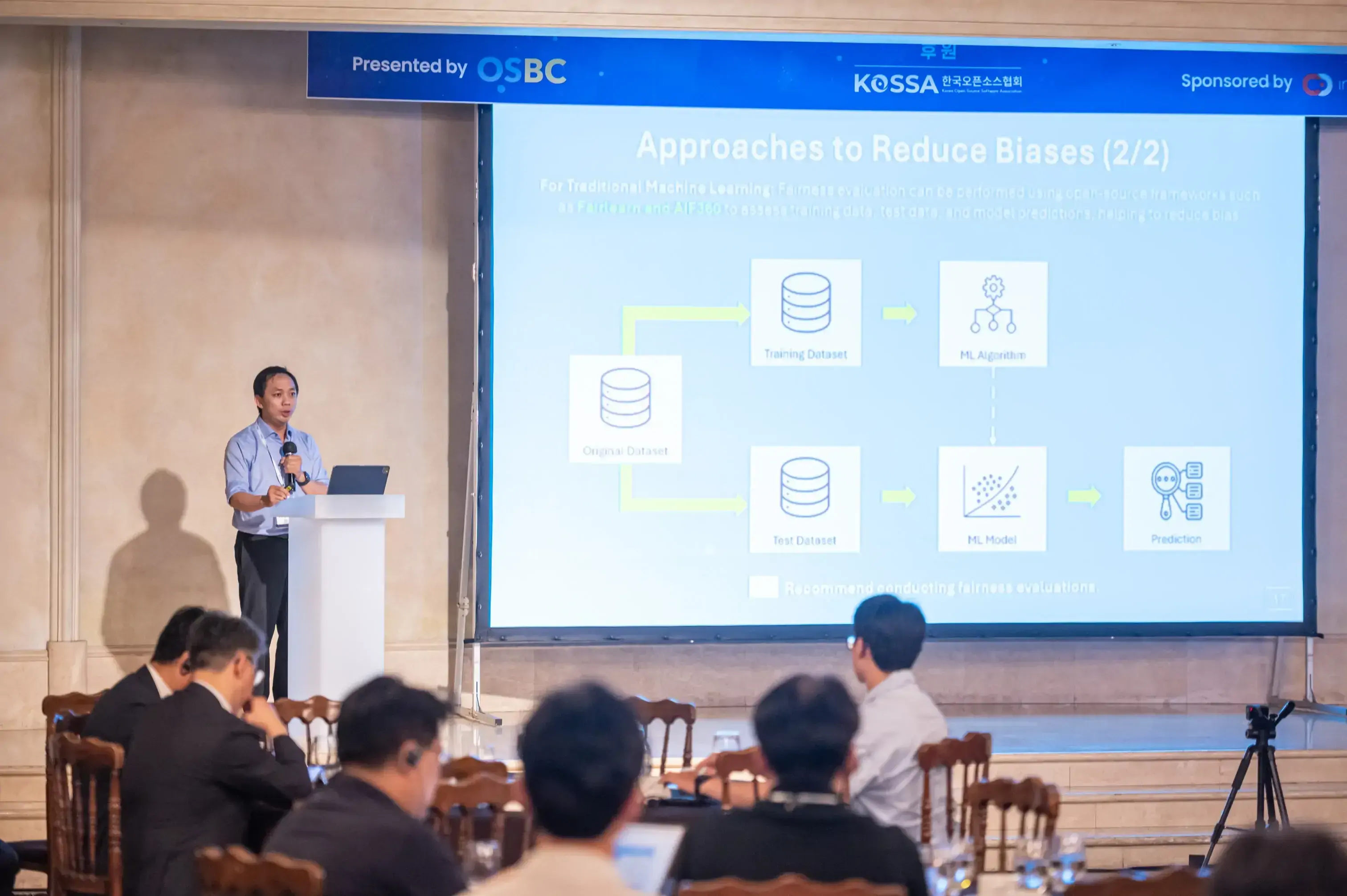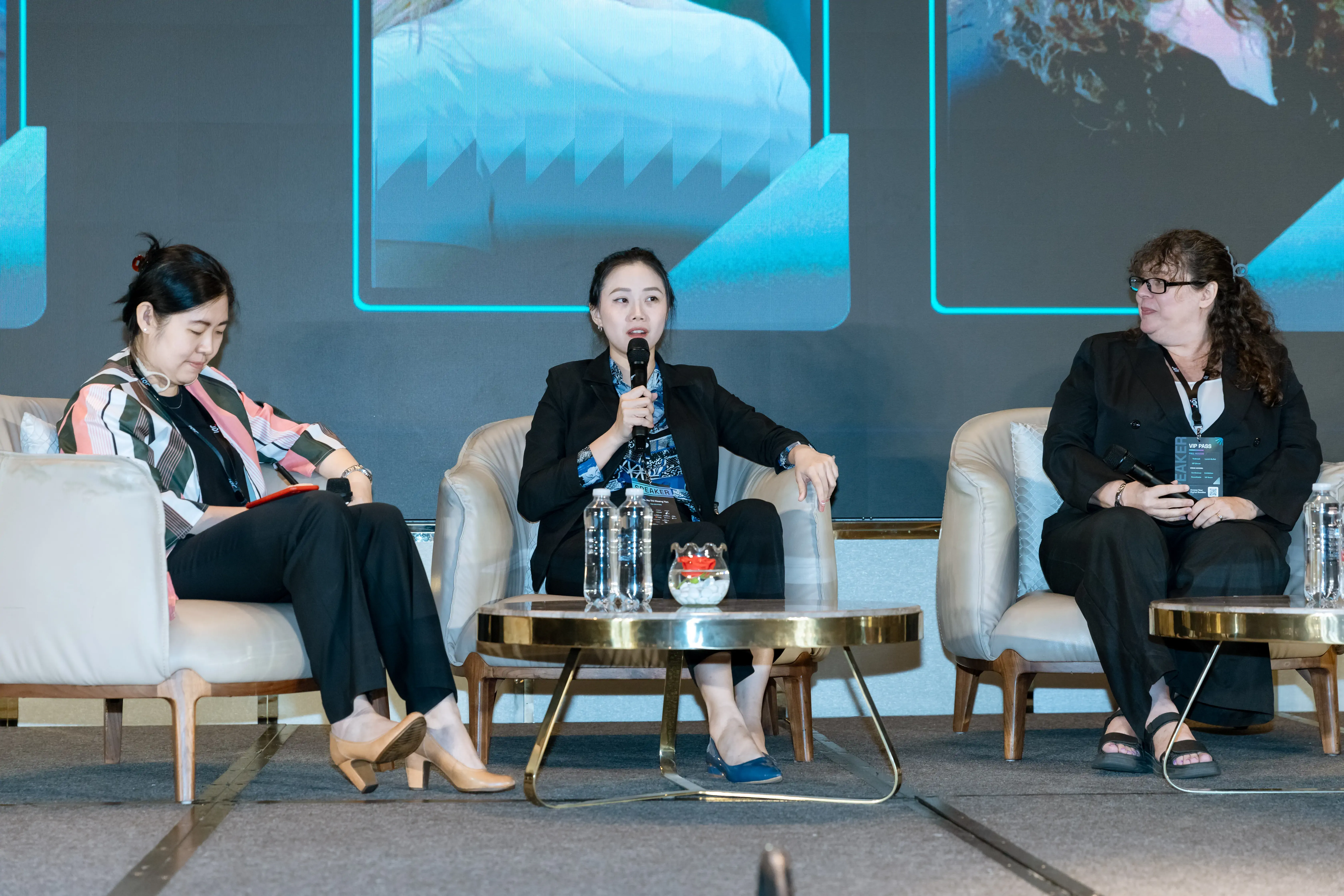On June 3–4, 2025, TMA Solutions took part in BIZTECH 2025 in Ho Chi Minh City—an event featuring AI-powered technology showcases, business networking, and thematic seminars on AI applications in areas like management, marketing, e-commerce, logistics, and HR. Organized annually by VINASA, the program aims to accelerate digital transformation, particularly among small and medium-sized enterprises, while also offering AI skills training to help businesses and individuals embrace the growing trend of AI Agent technologies.
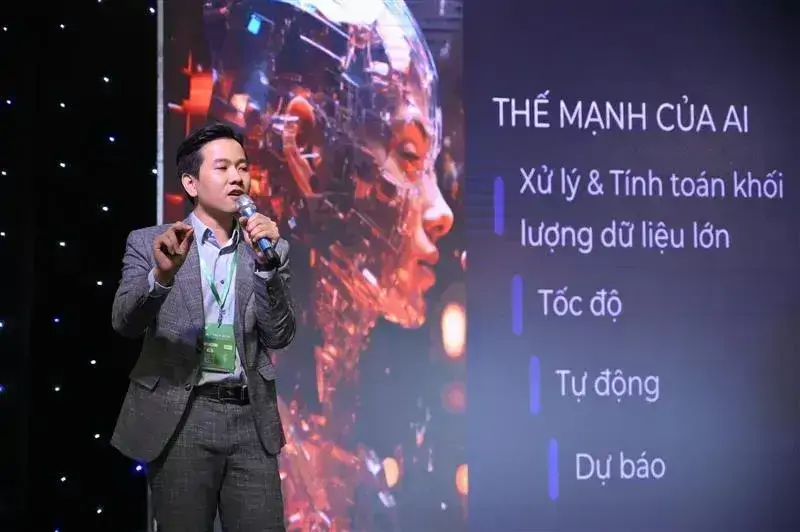
At the event, Mr. Hoang Minh Thang, Marketing Director of TMA Group, conveyed key information about the growing importance of AI and AI Agents in business operations. Mr. Thắng highlighted the growing trend of AI replacing certain types of jobs while also creating new ones, emphasizing that within every challenge lies an opportunity. He underscored the need for individuals and businesses to equip themselves with the right skills to adapt and thrive in the AI era. According to Mr. Thắng, this begins with understanding what AI is currently capable of, recognizing its strengths, and identifying the unique advantages that humans bring to effectively leverage and take control of AI. He also outlined several essential skills needed in this new landscape, including AI awareness, adaptability, and critical thinking.
Simultaneously, Mr. Thắng introduced the TMA AI Center, an early strategic investment by TMA Group. He shared how the center plays a key role in applying AI across various aspects of the company’s operations. From internal process improvements to the integration of AI into client-focused solutions and projects, TMA is actively leveraging AI to enhance efficiency, innovation, and service delivery.
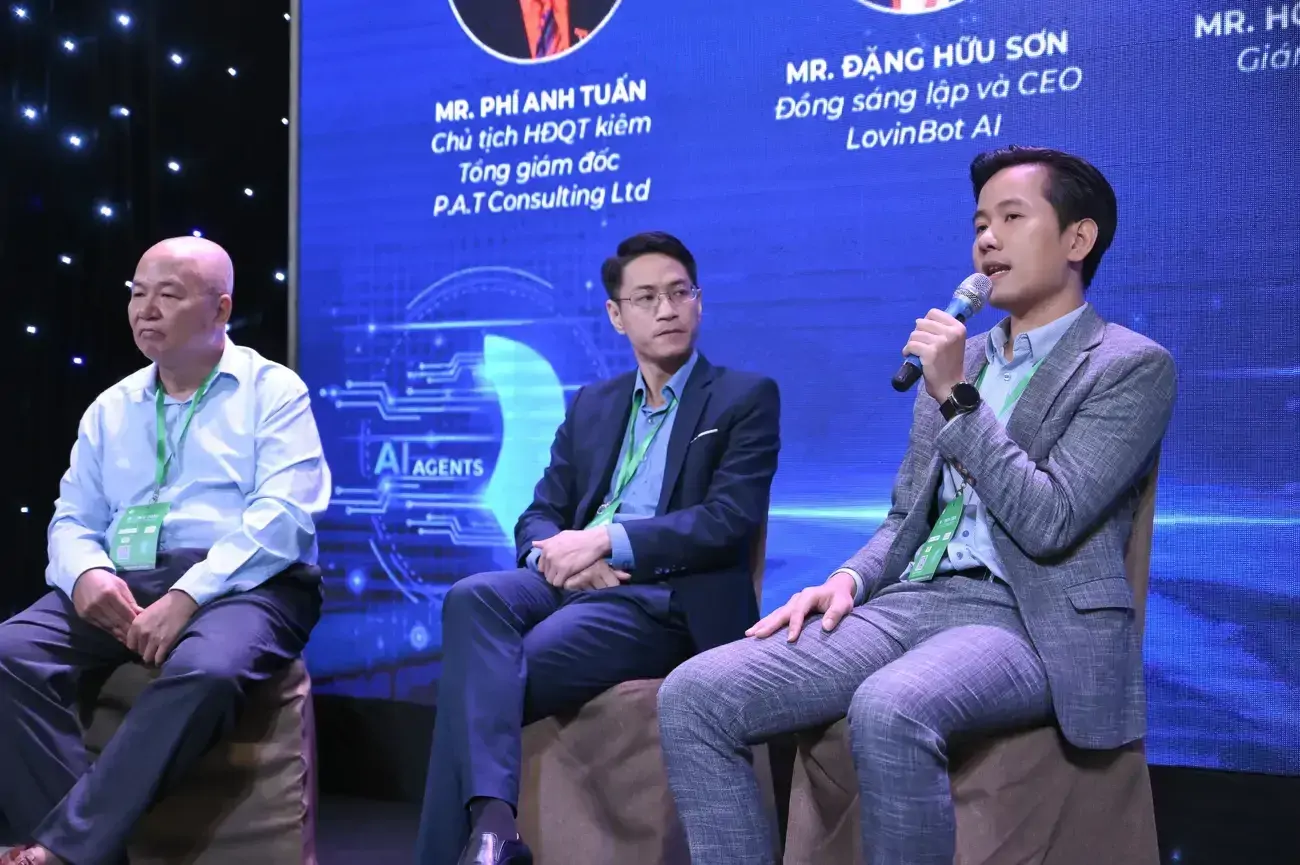
During the events, it was noted that both local and international tech companies have been adopting AI and AI Agents to improve efficiency and support business growth. Applying AI is not just about acquiring new technology; it involves a broader restructuring process that requires a shift in mindset and changes within the organization's workforce.
